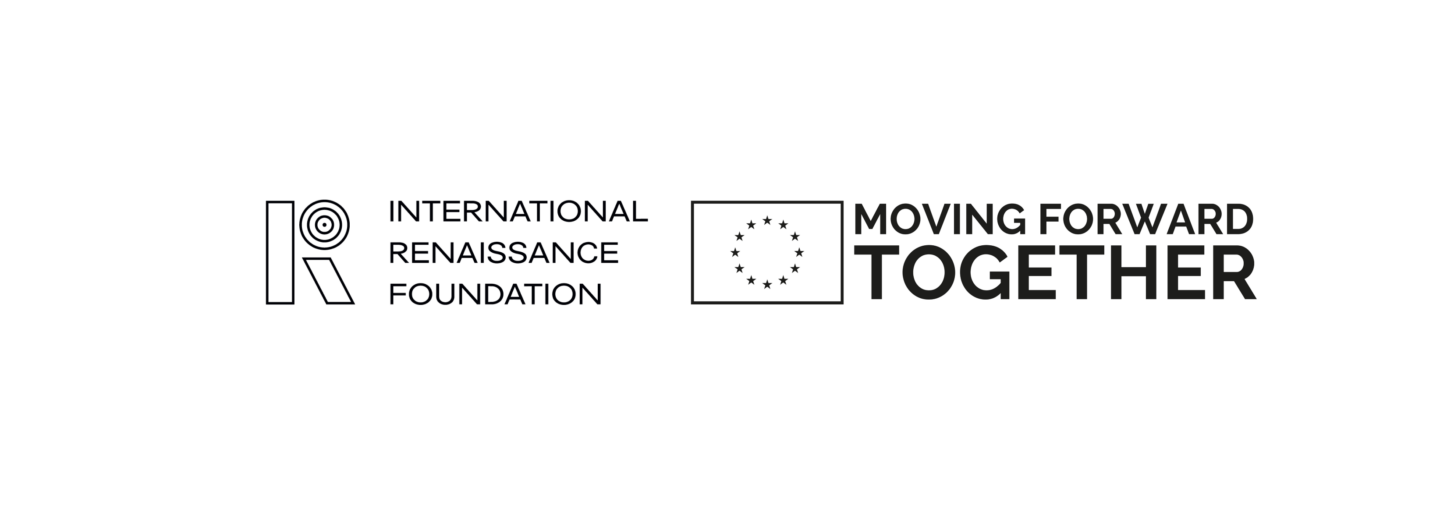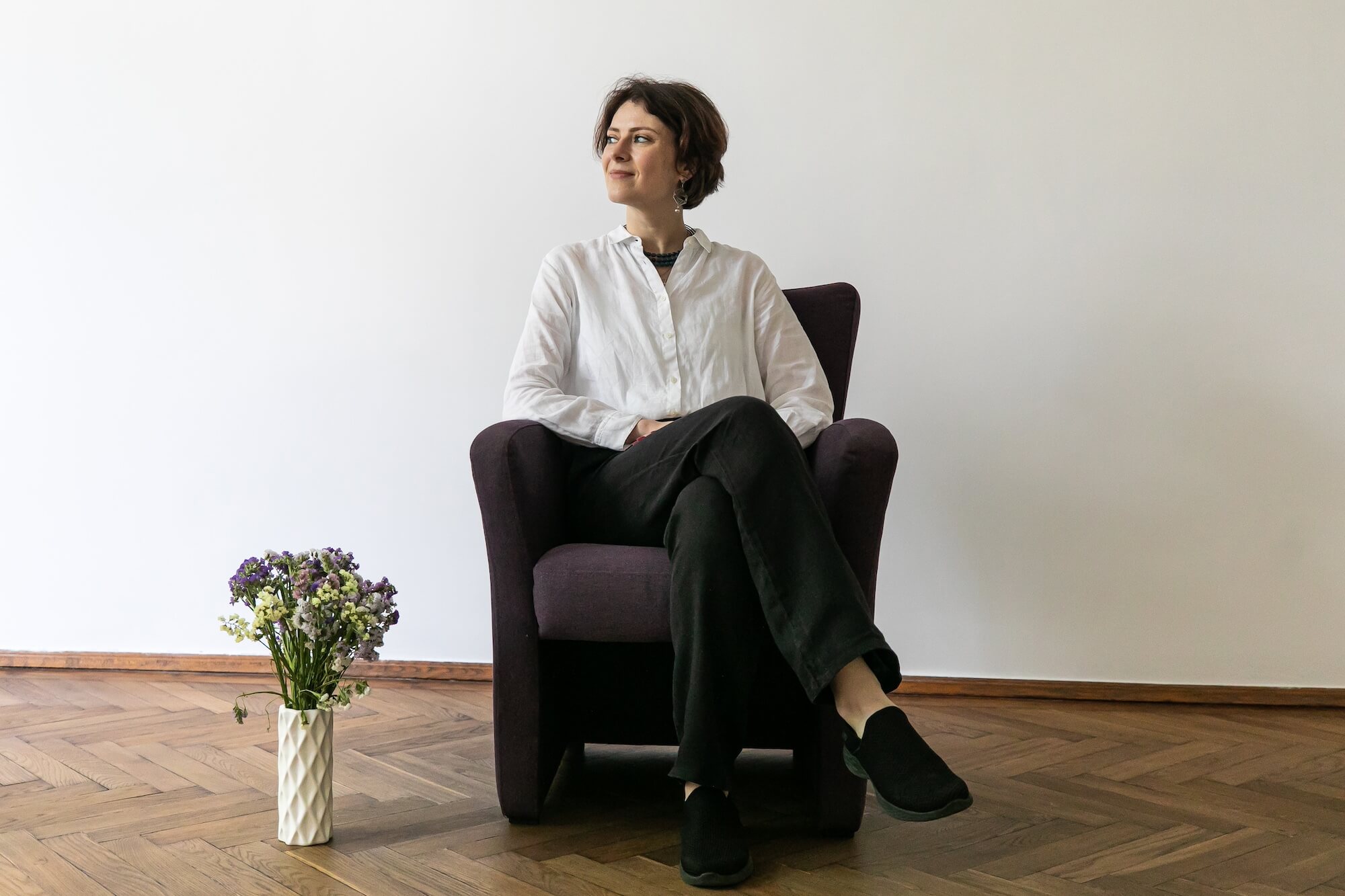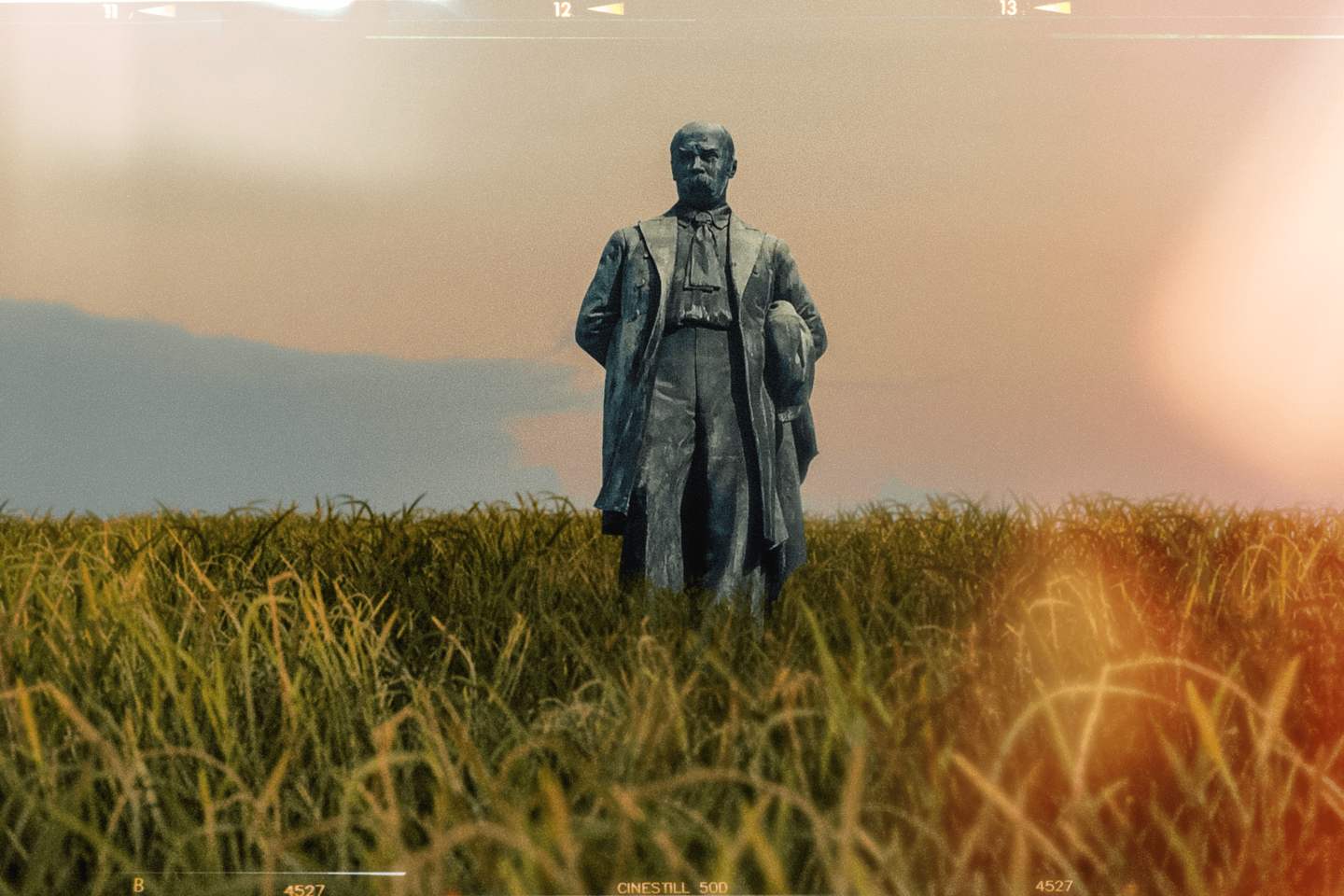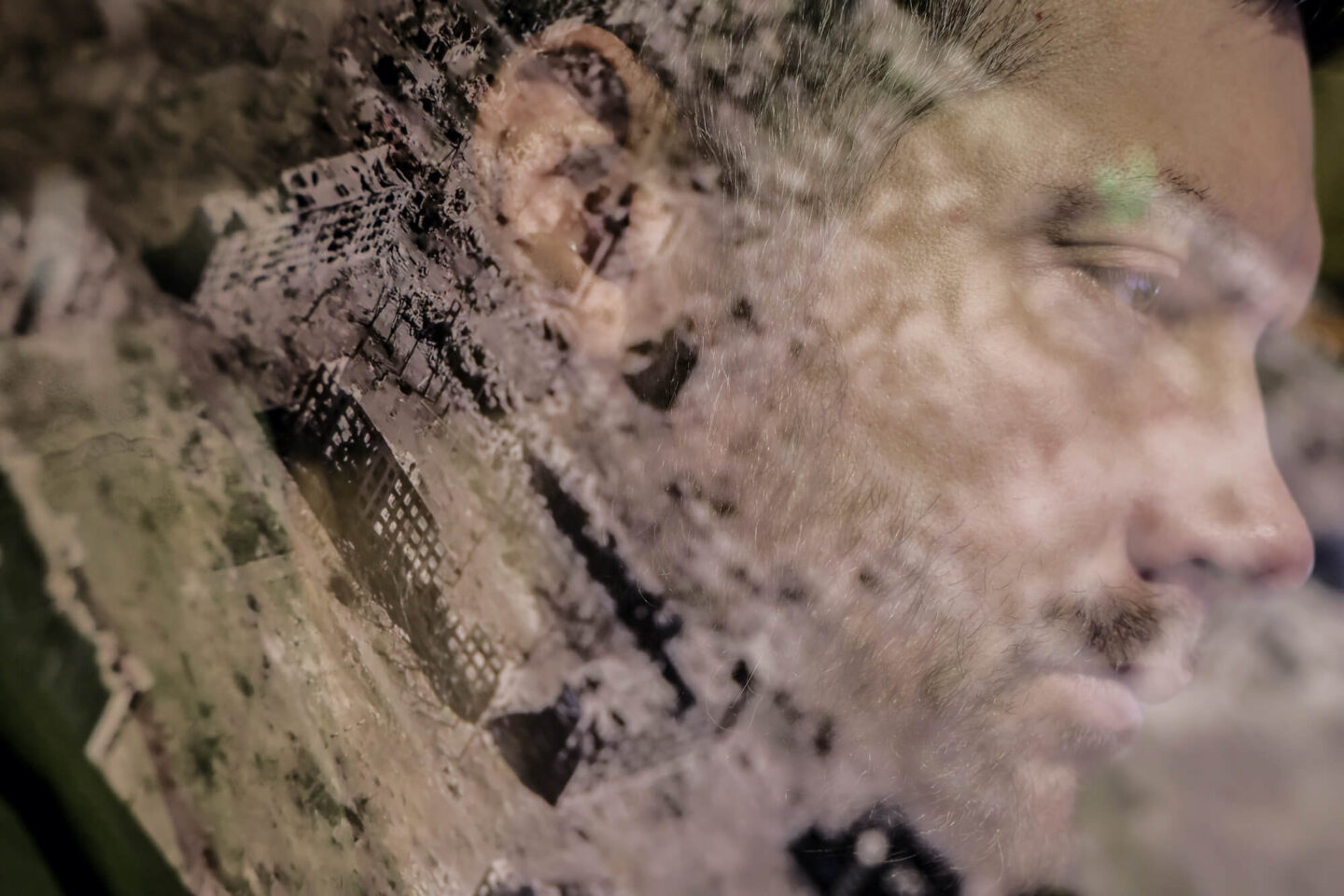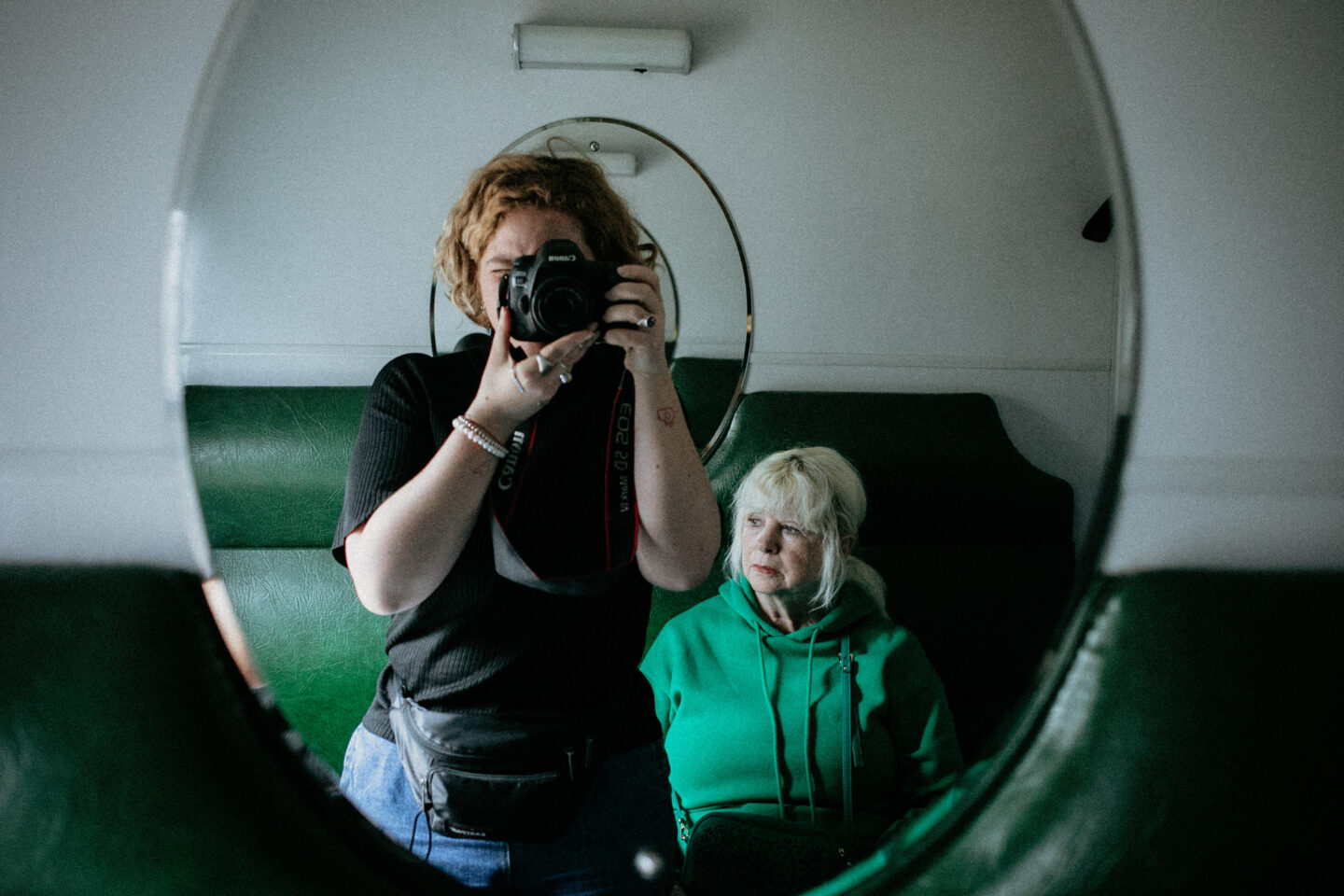In Lviv, a new institution is being launched—INDEX: Institute for Documentation and Exchange. It is founded by the Institute for Human Sciences in Vienna (Institut für die Wissenschaften vom Menschen, IWM) as a response to the need of documenting and reconsidering of the facts and notions of the Russian-Ukrainian war. INDEX will be headed by Sasha Dovzhyk—a writer, cultural researcher, curator of the project “People of Culture Taken by The War” and editor-in-chief of the London Ukrainian Review. She has a PhD in English Literature and Comparative Literature (Birkbeck, University of London).
In the interview, Sasha described the work of the Institute for Human Sciences in Vienna and why there was the need to found a new institution in Ukraine; about war challenges for the western audience and how it is possible to communicate about Ukraine through the culture and literature.
Sasha, please tell us about the Institute for Human Sciences in Vienna (IWM). What kind of research is conducted there? How distinct is the Ukrainian vector?
The Institute for Human Sciences (IWM) is a powerful research center, that has been developing successful Ukrainian programs since 2015. After the Revolution of Dignity and the outburst of the Russian aggression in Ukraine, the institute launched a program “Ukraine in European dialogue”, where they invite Ukrainian scholars, humanitarians, and provide the needed platform and resources to conduct research. The researchers are offered scholarships and possibility to stay at the institute from several months to half a year—to communicate, to exchange their experience with the foreign colleagues, to develop and present their research.
After the beginning of the full-scale invasion in 2022, it became clear it was not enough. Permanent members of the IWM board, historian Timothy Snyder and historian Kathryn Younger, offered an entirely different level of response and initiated the project “Documenting Ukraine” within the institute. The project aims at supporting the creation of the chronicles of the Russian war in Ukraine: from artistic reflections and artworks to documenting the outcomes of the war crimes. Timothy and Kathryn, as historians, have clear understanding of how important it is to document the Ukrainian experiences and keep them for history so that they served our cause of achieving justice.
As of today, more than 300 Ukrainian initiatives received grants for documenting the war challenges within the “Documenting Ukraine” program: these are historians, scholars, journalists, archivists, artists, writers, cinematographers etc. I became one of the program’s fellows and received much-needed support to continue my research in a time of limited resources and crisis, and I have seen firsthand how well the program works.
Moreover, as a next step, IWM initiated the creation of an institution in Ukraine. INDEX: Institute for Documentation and Exchange is an independent cultural research institution in Lviv.
There is understanding that documenting and speaking about Ukraine should go from Ukraine and according to the Ukrainian rules.
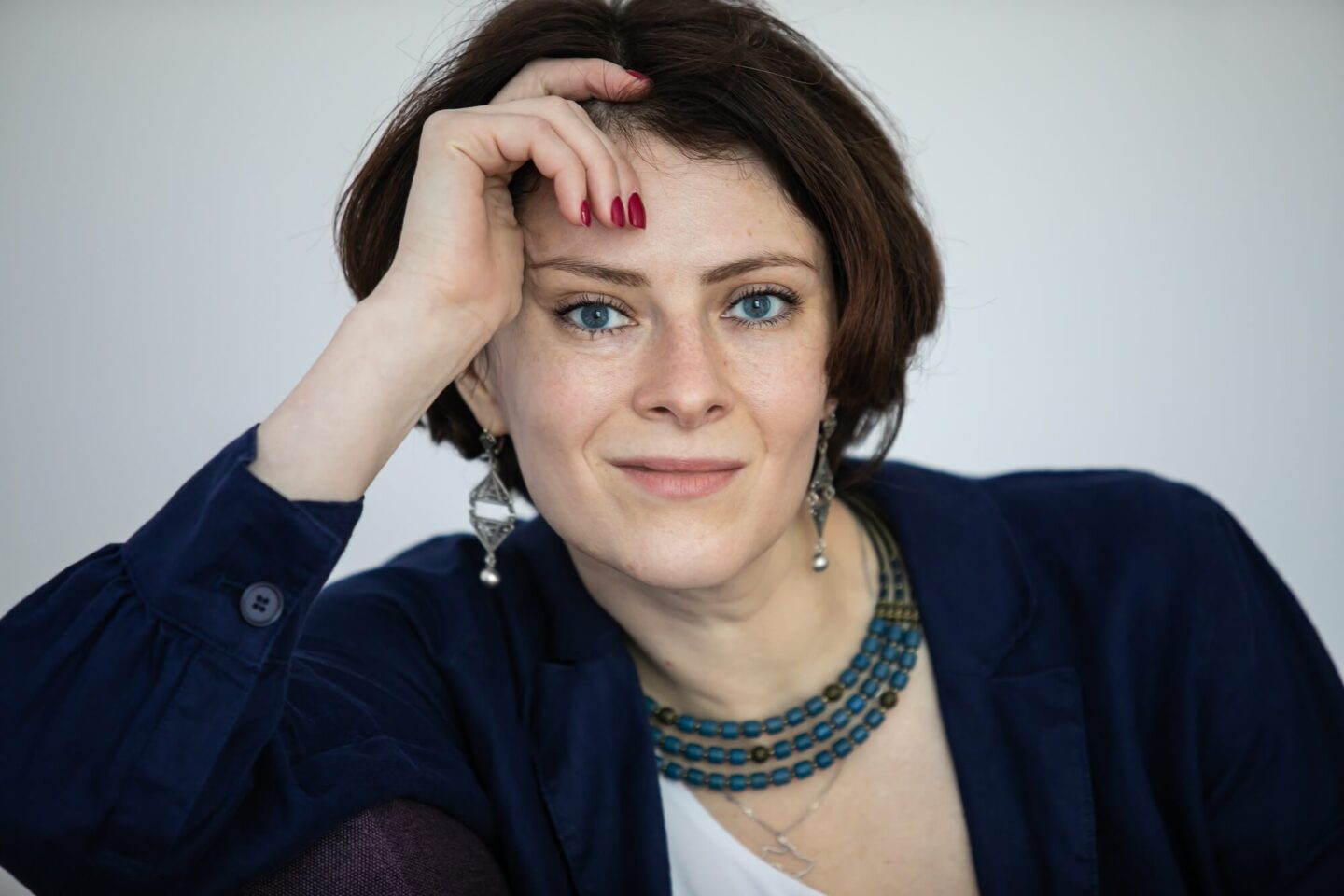
You’ve been leading the preparation for the launch of INDEX: Institute for Documentation and Exchange for a few months already. Tell us about your way to this position, your background—how did it all start?
I think it would be right to start from the point that was a breaking point for most of us—beginning of the full-scale war. At the beginning of 2022 it became obvious the escalation was inevitable. At that time, we did not know what exactly would happen and to what scale, but I understood we would have to act swiftly. My family is from Zaporizhzhia, so closeness to the front and feeling of danger have been known to me since 2014, although my city was 200 kilometers from the front then, and now it is just 20 kilometers away.
I came to Ukraine, to Lviv, in early February 2022 with the understanding that I had to create a new point here, an ecosystem where people could stay if they had to flee from the east or north. In the first month of the full-scale invasion, I welcomed people from other regions and hosted them in Lviv—in flats entrusted to me by my friends. Some of those people stayed for longer, whereas for some of them, Lviv became a transit point for traveling abroad. Also, very soon I realized people didn’t only come from the east of Ukraine to the west, but they also came from abroad to Ukraine to document and talk about the war. That’s how I started working with foreign reporters as a local producer in Lviv, and later I went with them to the liberated towns in Kyiv Oblast.
At the intersection of different people’s paths, I gained a highly valuable experience and felt the importance of facilitating the meeting of people from abroad with Ukrainian reality.
Meanwhile, I also wrote quite a lot about the war in Ukraine for foreign media. I also wrote down essays that I planned to organize into a book. I continued to work on them on a scholarship as part of the “Ukraine in European Dialogue” program in Vienna and spent two months in extremely comfortable conditions for creative work. At that point, I had a strong desire for the similar infrastructure to be developed for researchers in Ukraine. There, I got to know about the IWM plans to open their office in Lviv. When the offer to head it came up, the key factors converged for me: I would be useful in Ukraine and would have the opportunity to create a sustainable institution where researchers would be involved in international intellectual interaction without leaving Ukraine.
What plans does INDEX have, what projects are you working on, what is the value of this institution?
First, it is important that not a temporary program, but a permanent institution that plans a long-term work and can be counted upon, appeared in Ukraine. This is a point of stability in a country where almost every generation has to start from scratch, where there is no institutional continuity and inheritance.
Also, INDEX is to become the center of work for both Ukrainian and foreign researchers, who would be able to get to know more about Ukraine, to exchange their precious experience with us and with that, to support those who stay in Ukraine despite war challenges.
Foreign researchers, cultural figures, artists usually start to talk differently about us even after a short visit to Lviv, which is so far from the front.
Foreigners immerse in the community, the context, they form horizontal connections, which alter their understanding of Ukraine. So, the Institute for Documentation and Exchange will not only support the researchers with scholarships but will also become a brick-and-mortar center where fellows from Ukraine and abroad will be able to work together. At this point we already have a list of the first researchers who will join us, which includes scholars, journalists, and artists.
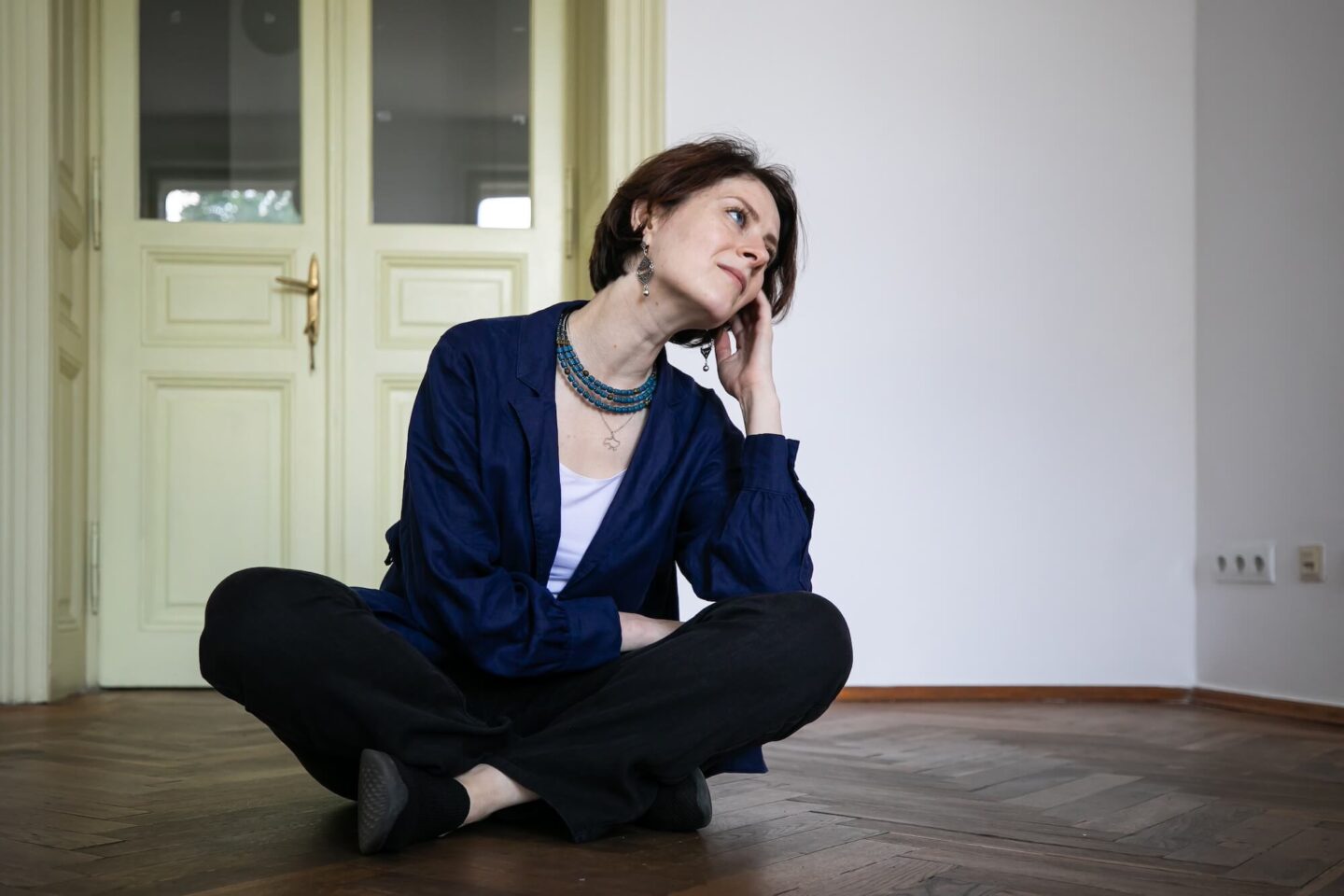
Archiving will be another important work direction of the institute in Lviv. After all, today many people are immersed in documenting, recording testimonies, collecting facts, but do not understand what to do with this material, how and where to store it safely, obtain or provide access. Storing materials on personal Google disks is not reliable. That is why our institute will have an archive coordinator who will deal with this, build the necessary infrastructure so that the materials are, on the one hand, securely preserved and, on the other hand, available.
We also want to unite initiatives that deal with documentation. Even now it is partially implemented via the symposium “The Most Documented War”, that we organize in cooperation with the Center for Urban History. The researchers, institutions, that document the war, gather in Lviv and exchange their reflections and work results. We expect this symposium to be held annually.
As one of the results of the symposium, I now have on my desk the book “Conversations with Those Who Ask About the War”, compiled by Natalia Otrischenko, with which the Center for Urban History, together with INDEX and IWM, launch the series of publications entitled “War Stories: A Series on Documentation and Archiving.” In this way, we want to create a space for joint reflection and a flexible form of recording it. Hopefully, these publications will be able to respond to changes more quickly than a book by a scholarly publisher, and at the same time to be more sustainable and durable than instant online publications. Currently, we start working on the second book in this series and the translation of the first English book.
You have such vast experience of working abroad, particularly in London. What stereotypes about Ukraine have you encountered in the British environment, and have you tried to refute them?
I’ve lived in London for nine years. I completed my master’s degree and later wrote and defended my PhD at Birkbeck, University of London. This college is famous for its rather leftist, progressive moods. There are a lot of feminist, eco-activist movements there. Most of the graduate students I studied with had no idea about Ukraine. I remember how in 2014 I helped them find Ukraine on the map. I was also irritated by the leveling of national issues, which is common in leftist circles. When I stressed that my Ukrainian identity is important, it looked like a prehistoric nationalism for my friends and colleagues. I tried to explain that if Ukrainian identity did not exist, if it was not distinct from Russian identity, and if we lived in a world governed exclusively by labor law, then Russia would not have sought to destroy us with such persistence. As there was already a war going on in Ukraine.
Simultaneously with my studies, I organized rallies in support of Crimean political prisoners and the Ukrainian army, and I began to involve people from the English-speaking community, including my English literature department, in these movements. It was my attempt to initiate a conversation about Ukraine abroad, instead of constantly fighting the stereotypes.
How did you build communication about Ukraine abroad?
My way goes through communicating via literature, and it started from my own return to my Ukrainian identity. I grew up in a Russian-speaking family, I studied in an environment where, consciously or unconsciously, the interest towards Ukrainian culture was discouraged. For me, Ukrainian literature was the literature of suffering peasants and their everyday troubles, and I had to go a certain way to realize that it was a crooked imperial mirror. I began to return to Ukrainian culture after I rediscovered the incredible Lesya Ukrainka and Olga Kobylianska.
I was struck by the fact that Lesya Ukrainka never internalized the colonial perspective, as Oksana Zabuzhko, Vira Ageeva, and Tamara Gundorova have said a lot about this. Lesya had her own dignity and communicated with representatives of the world culture on equal terms, she boldly analyzed world myths and key stories, and through them she could highlight a certain problem in Ukrainian society. Rewriting Don Juan in Ukrainian or using the myth of Orpheus in “The Forest Song” required creative courage and no sense of inferiority. Moreover, Lesya Ukrainka’s reinterpretation of these world-famous works is another valuable layer that can be incorporated into world culture.
Unfortunately, in the West, Ukrainian culture is still often perceived as provincial, so we always need to find tools in communication that can be used to spark the westerners’ interest. My point, through which I started to talk to the English-speaking audience in London, was, again, Lesya Ukrainka, as her creative work can be viewed through the perspective of themes close to progressive circles—feminism, anti-colonialism, eco-activism… Lesya Ukrainka’s work helped to show the relevance of Ukraine to their experience.
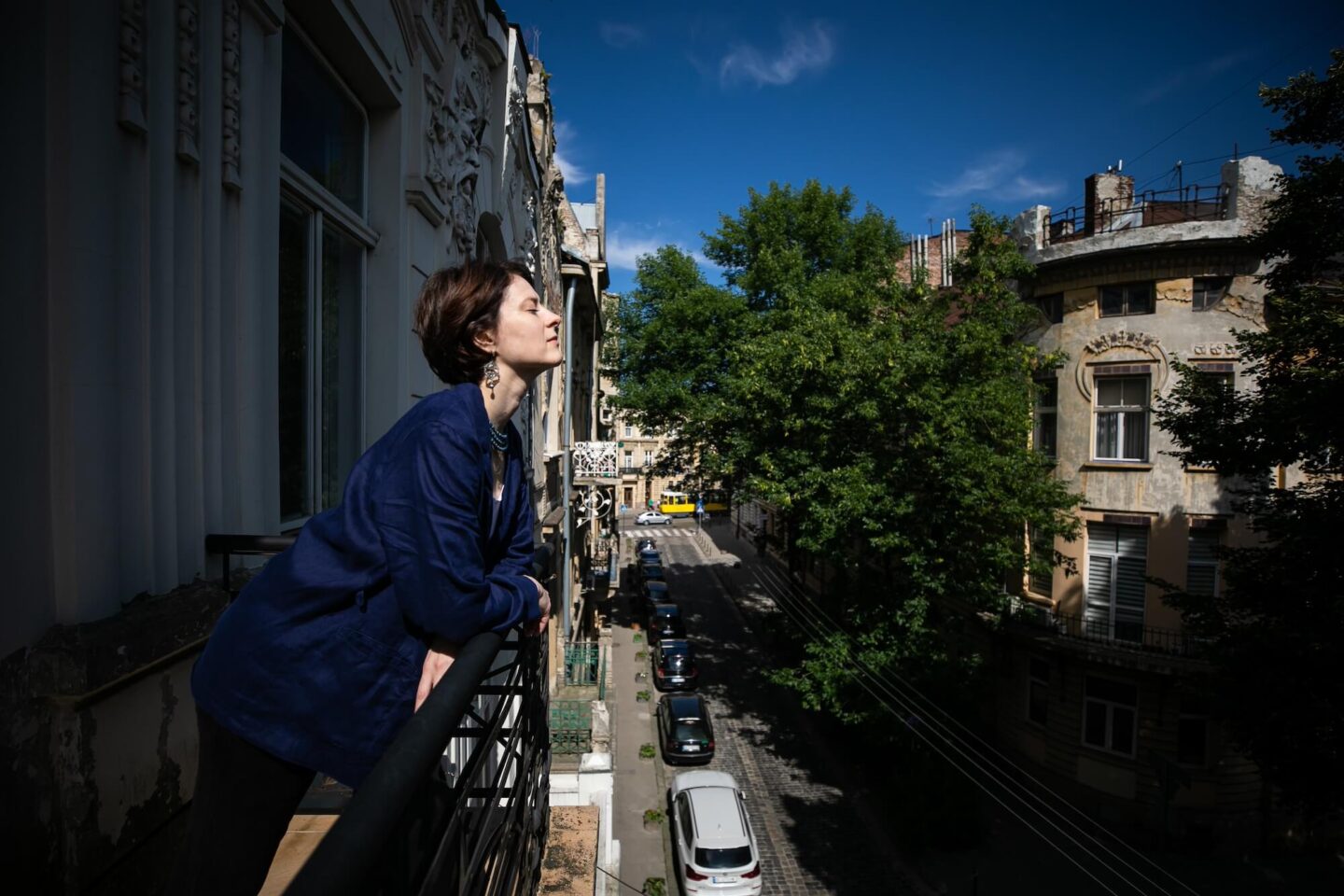
The British researcher, Uilleam Blacker, helped me understand that Ukraine could be also discovered through the representative of other nationalities that lived on its territory. I had an honor to teach a course he had developed—not about Ukrainian literature, but on literatures of Ukraine: Jewish, Polish, German, Crimean Tatar, that developed on our territory, influenced each other, and coexisted with Ukrainian literature. There were a lot of Jewish studies students on this course, as University College London didn’t offer too many courses that provided information on Jewish tradition on these territories, and that was what they were interested in. But through Jewish literature of Ukraine, they simultaneously started discovering Ukraine as a multi-ethnic nation, united today by certain political ideas and a vision of the future. And, of course, I did not hide my political position during this course. We discussed the war and anti-colonial resistance as a tradition at almost every seminar.
As a curator of the Ukrainian institute in London I initiated the project “The Ukrainian Laboratory”, where we identified three topics—the environment, disinformation, and war—that resonate with people around the world and tried to highlight Ukrainian views on them. As part of the project, we paired three emerging female writers from Ukraine with their British counterparts. For six weeks, they wrote and listened to lectures by Ukrainian literary and cultural critic Tamara Gundorova, British journalist and writer Peter Pomerantsev, writer Julia Bell, historian Olesia Khromeichuk, and others.
The online residency resulted in essays on the environment, war, and disinformation from Ukrainian and British perspective, published as a bilingual book. But, most importantly, we didn’t just engage British writers in a one-time dialog, because after this project they continue to study Ukraine and communicate with Ukrainian writers. They became “advocates”” of Ukraine in their environments and in this way, they engage in discussing our issues abroad.
You write extensively for foreign media and work as the editor-in-chief of the London Ukrainian Review. What is the latest issue about?
We publish the London Ukrainian Review in cooperation with the Ukrainian Institute in London, the Institute for Human Sciences in Vienna, and Academic Studies Press, which help to include the journal in an academic catalog so that researchers can use our materials later.
Every issue has a thematic focus. We devoted the first issue of 2024 to the environment, analyzing, for example, the destruction of the Kakhovka water reservoir. This topic helps us lead those people who are interested in Ukraine out of the bubble and pave our way to a new group of western readers who are interested in ecology, among other things, and at the same time explain the destructive impact of war and military conflicts on the environment. This way, there is a chance that readers will be concerned not only with the environment, but also with the Russian war in Ukraine. In this context, we also recorded an extensive interview with Jojo Mehta, co-founder of the influential advocacy group Stop Ecocide International. Among other things, we discussed the destruction of the Kakhovka reservoir by Russians, which can become a precedent for the creation of a legal base that would include ecocide in the international criminal code along with genocide, crimes against humanity, crime of aggression and war crimes. This is a chance to hold Russia accountable. And now we are actively working on it.
It is important to use various channels to communicate our experience to international readers. Poetry can be such a channel, even when it comes to the topic of environment. For example, the poems of the Ukrainian poet Kateryna Mikhalitsyna about Kakhovka, about trees as witnesses to war crimes, speak very strongly. This documentary poetry makes unforgettable impression.
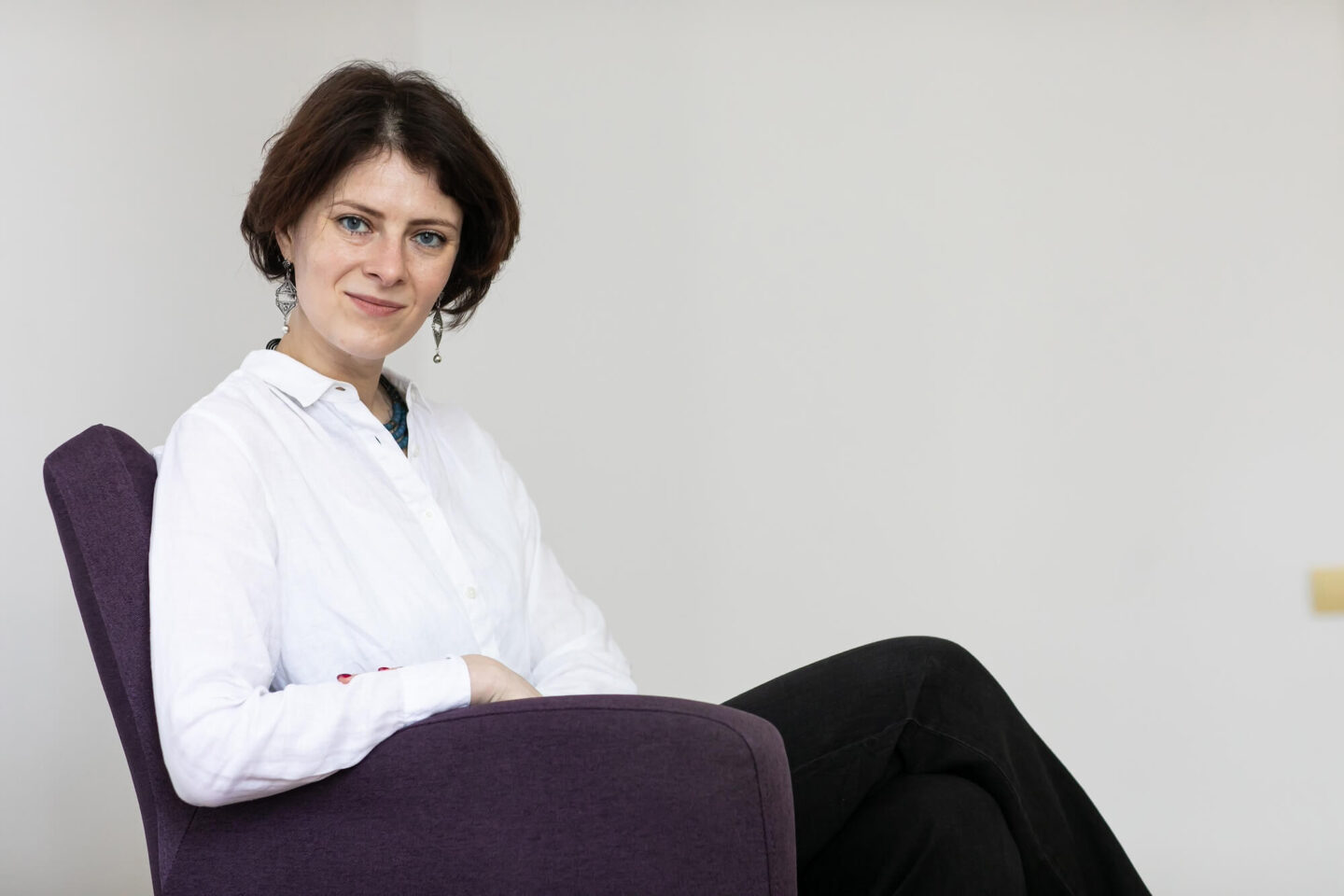
You are also a curator of the “People of Culture Taken Away by the War” project—this is a series of textual portraits, created by The Ukrainians in cooperation with PEN Ukraine. How do you work with such hard topic?
It is a very painful project for us, like our entire reality. It is intended to collect stories, create written portraits of the people of culture killed by Russia, and at the same time testify to its genocidal intentions. We’ve conducted numerous conversations with relatives, friends, and comrades of the deceased, to immerse in the heritage they left, to understand it, to define this gap, the void that has formed in the body of our culture.
I often think of the body of Ukrainian culture as a canvas where Russia is constantly burning new holes. For this canvas not to be teared into pieces, we have to treat these voids like wounds. Yes, at the moment the canvas is pierced with holes, but it is our canvas, it is our culture. That’s why the book by Viktoria Amelina “Looking at Women Looking at War” will be published in the form the author left it, with alternating chapters, unfinished fragments, and blank pages. This work is a testament showing that culture documents war crimes, it becomes their victim and their witness. Viktoria Amelina’s book will be published in February 2025 in Great Britain and the USA. I had an honor to be a part of the editorial group.
[Read also: People of Culture Taken Away By The War]
We wrote about Viktoria within the “People of Culture Taken Away by the War” project, but it was important for us to show not only the people who had left a considerable creative legacy, but to highlight those whose legacy we won’t be able to assess fully, because their journey was still ahead. We will never know what Yaroslav Sanchenko, a 22-year-old actor, could do, what roles he could play, how he could perform in theater. He went to the war and lost his life there. It is also important to remember people who hold this culture canvas with their daily work. Thus, Vitaliy Pyvovarov, the librarian from Zhytomyr, killed on the front, or Olya Koliorovo, the artist, who worked with children with disabilities in Kremenchuk and supported the community around her. Olha was also a researcher of the Ukrainian cuisine, and she had even written a book on this topic, but she was not to see the book being published, as her family took care of the publication after Olha had been killed by a rocket attack on a shopping center. Continuing the work of the deceased person of culture is also about memory and responsibility, which we must all share.
Keeping knowledge about each person, everything they did and did not manage to do, is an important thing in this war. It is vital to cherish the memory of everyone who became victims of the Russian aggression, not just people of culture. Therefore, we have to create such an inclusive infrastructure where every family who lost their loved ones will not feel rejected or left out of the processes of memory formation.
Today, we have talked a lot about literature and its influence. My last question concerns the recognition of literature—can our culture receive the highest honors; will we ever get the Nobel Prize in Literature?
This question gets us back to the issue of institutionalization. A specific infrastructure must be created in Ukraine for people to have support and environment necessary to work and develop their creativity, their skill. The absence of those explains why the short literary form is much more successful in our country than the long one, which requires different conditions, support, and duration.
In order to create a poem, it is not necessary to work at the residency for six months, but to write a novel, a few months are needed, as well as the resource, and preferably a dedicated place.
We are often deprived of all this for various reasons, and Russian aggression is one of the most important factors.
The Nobel Prize in Literature is still ahead for us. But it is important to remember that the Ukrainian Oleksandra Matviichuk, head of the Center for Civil Liberties, won the Nobel Peace Prize in 2022. It means we are already included in this history through the culture of our resistance and documenting of our experiences. The Ukrainian experience of an unprecedented struggle for our rights in a full-scale war is extremely important and valuable for the world. Realizing the history of this resistance inside Ukraine builds a certain platform we can use to speak with world literatures on a completely new level.
Contemporary texts from authors who write while living through the experience of war are often the literature imbued with thoughts on freedom and dignity that Ukrainians are defending today. And when I hear people in America or Europe talking about fatigue from the war in Ukraine, saying that they would never take up arms and would instead run away from the threat, I have a question for everyone who levels the importance of fighting for their country: how far and for how long will we run away until we finally realize that it’s time to fight for our values?
Translation — Olha Dubnevych
§§§
[The translation of this publication was compiled with the support of the European Union and the International Renaissance Foundation within the framework “European Renaissance of Ukraine” project. Its content is the exclusive responsibility of the authors and does not necessarily reflect the views of the European Union and the International Renaissance Foundation]
